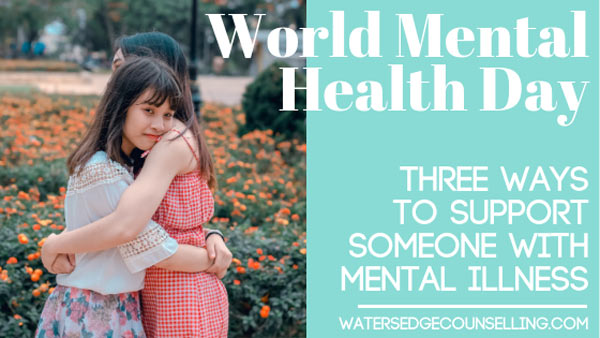
This article is adapted from the opinion piece ‘Addressing the Whole Person’ written by Jessica Morris for The Salvation Army’s Others magazine.
It’s been 15 years since I was diagnosed with anxiety and depression. In that time I have seen the best and worst of different communities as they tries to grapple with an illness that is so often hidden.
Whether we find ourselves in a faith-based community, a sports club, or are navigating the mental illness of a family member, we each play a role in helping them to live whole, fulfilled lives.
My experiences have taught me a valuable lesson: that one of the gifts we can give to those living with mental illness is to see them as whole people.
They are more than just their mental illness; they are people who are able to give and receive in community. This is a way we can offer them the space to fully experience love and acceptance. It means we must hold together the physical, spiritual and community needs of every individual, irrespective of their diagnosis, the scars on their arms or how awkward we feel.
When we fail to do this, we can unwittingly perpetuate their illness and enforce a belief that they are alone and not worthy of hope and help.
-
Support their physical needs
Our physical needs encompass our overall wellbeing. Mental illness is intrinsically connected to physical health. While exercise can help people to reduce anxiety and depression, physical health isn’t always an indicator of good mental health. And for many people, there’s stigma that taking medication or receiving counselling means you aren’t strong enough, or perhaps don’t have enough faith in a divine God.
This is simply not true. No matter what you believe, anyone can experience a metal illness. It does not detract from someone’s inner strength, faith or innate worth. So if you see someone in your community struggling, instead of trying to ‘fix’ it or find the ‘right’ words, offer to take them doctor.
This provides them with a diagnosis, and allows them access to services that will put them on a unique path to recovery. If all else fails, give your friend the number for Lifeline (13 11 14 in Australia).
-
Offer spiritual care
We all have a spirituality, and this is often expressed in how we see the world and what we value. Some people will gratefully ask for prayers or good vibes in accordance with their beliefs, and others may prefer to steer clear of the topic all together.
Growing up in a religious community, spirituality was always an intrinsic part of my walk with mental illness and my ongoing recovery. However, I know how it feels to pray for healing and not receive it. And it is really difficult when you feel others imply that you lack faith, or aren’t positive enough if you experience mental illness or aren’t miraculously healed.
A more compassionate response involves listening to a person before praying for them or trying to comfort them using your own framework of beliefs. Take a personal approach and affirm the courage an individual has shown in asking for help, then ask them what they need.
-
Provide community support
Irrespective of our mental health, we all need to know we belong, are safe and are valued.
Your family, club, church or group can become this community for people living with mental illness, by showing up for them. We must change our mindset that sees them as ‘attention seekers’ or ‘too needy’, and instead see the unique plans and purposes for their life.
This change of mindset might mean we need to change how we speak to respect their needs, just as we change the physical layout of our buildings to accommodate people of different abilities.
It’s not about being politically correct; it’s about acknowledging that a person’s mental health can be fragile. On a personal level, this means being a friend to those who feel friendless or are unable to maintain friendships well.
Send a text and invite them to events. Offer to take them out for coffee. Remember, a person who is experiencing mental illness won’t always show up or even respond, but your consistency is the key.
Friendship with anyone is not a ‘project’ or a ‘ministry’. Friendship is a two-way relationship – we give and receive from each other. When they struggle to give to you, your friendship shows them that you still care about them and that God hasn’t forgotten them.
There is freedom when we learn that a person experiencing mental illness requires infinitely more than what a community group or we can provide.
It is hard not to feel you want to fix someone struggling with mental health. But it’s not your responsibility to heal them. Instead, it is our responsibility to see the person as a whole being, and honour this by moving towards them consistently in authentic friendship, to stand with them in the midst of the mess and to connect them to the resources that will support them in their journey.
Are you supporting a loved one who experiences mental illness? Do you feel lonely, anxious or depressed? Contact Colleen on 0434 337 245, Duncan on 0434 331 243 or Rachel on 0442 177 193 for a FREE 10 minute consultation on how we can best help you or book online now.
Leave a Reply